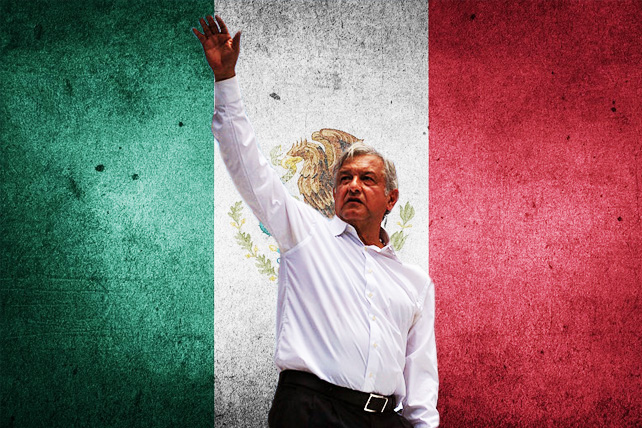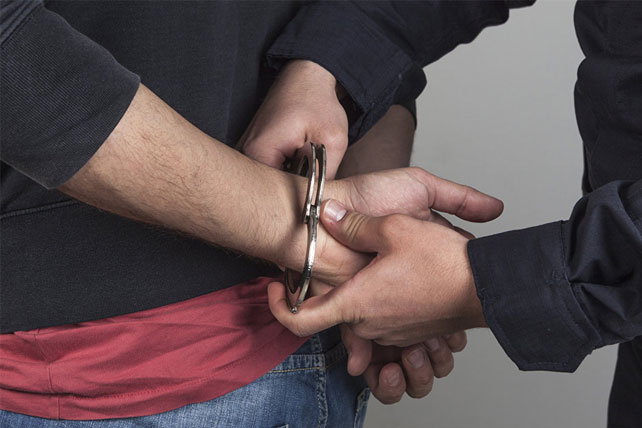The leading presidential candidate in Mexico’s election says scaling back the country’s militarised drug war could reduce bloodshed. Meanwhile, election candidates are being killed in huge numbers.
Mexico’s election process began in September 2017, with candidates and voters preparing for the country’s general and local elections, which will take place on July 1. The nine months following this declaration have seen widespread violence against politicians, with at least 113 policymakers or candidates being brutally murdered. Some were outspoken against cartel activity, while some were alleged to have been involved with trafficking.
Recent murders
The most recent death was that of Rosely Danilu Magaña, a candidate running for a municipal council seat in Isla Mujeres, who was shot by two men while at a campaign meeting on June 9. Magaña died in hospital on June 11, and her attackers have not be identified or captured.
One day prior to the attack on Magaña, Fernando Purón – who was previously mayor of the city of Piedras Negras – was murdered after speaking at a pre-election debate. Just minutes prior to his death, Purón told crowds that he had a strong record of opposing the notorious Los Zetas drug cartel, and that he would not cave to corruption:
"We demolished where the Zetas lived, houses that were a monument to the [illegal drug trade], we snatched the city from Los Zetas and returned it to the citizens. [Drug cartels] seek to do illicit business, earn dirty money for criminals, sow terror and fear among citizens, infiltrate the police with corruption."
“You take on crime head-on – you don’t fear it, you call it for what it is. Unfortunately, not all those in power do their job – some are even in cahoots with criminals.”
Purón was shot in the head while taking a selfie with a supporter outside the debate venue. His attacker has not been identified by authorities.
Earlier in the month, on June 2, three female politicians or electoral candidates were found dead in two separate attacks on the same day. Pamela Teran Pineda, who Mexican News Daily allege was the daughter of a cartel leader, was shot to death – along with her driver and photographer – in the southern town of Juchitán.
Later that morning, the bullet-ridden bodies of electoral candidate Juana Irais Maldonado and city councillor Erika Cazares were found in a car in the central Mexican town of Jopala.
“[Politicians] can only protect themselves to a certain point,” according to Esteban Illades, publisher of the Mexican magazine Nexos. “Violence is so widespread and so vicious that it doesn’t matter how many bodyguards you have.”
Mounting death toll
There were an estimated 29,168 murders in Mexico in 2017, the highest figure since records began in 1997. Violence has surged in the country since President Felipe Calderón initiated the country's militarised war on drugs in 2006.
At least 108 mayors have been murdered across the country since then, with the brutality widely understood to be perpetrated by drug cartels and affiliated groups.
However, the violence is also being perpetrated by authorities – by the army, militarised police, and corrupt authorities. In a particularly notorious incident in 2014, 43 students were kidnapped – presumed killed – in the state of Guerrero; federal authorities later concluded that the attack was ordered by a corrupt local mayor for political reasons.
A scale-back of the drug war?
The leading candidate in the general election, Andrés Manuel López Obrador, has proposed a radical shift in the country’s approach to the war on drugs.
López Obrador, who has a significant 17-point lead over the next closest candidate, wants to introduce a drug policy that he nicknames “hugs, not bullets” ("Abrazos, no balazos”). He says that people convicted of drug trafficking offences should be given amnesty, unless they have also committed violent crimes, and branded it "inhumane" that the state "is massacring [young people] when they take the wrong path of crime".
He claims that drug war violence can be reduced by increased state investment into infrastructure, and improved job creation for young people.
"We are going to change this rotten, corrupt regime of injustices and privileges, and we are going to promote development. I can summarise it in one sentence: work, good salaries, and hugs, not bullets. The people of Sinaloa are not bad by nature”, he noted, referring to a state with widespread prohibition-related violence, “it is that many have been forced to take the path of antisocial behaviour, many have [lost their] future – especially the young, that will not happen anymore".
It is yet to be seen if López Obrador can turn his poll lead into electoral victory on July 1. For the remaining three weeks of the electoral process, Mexicans must remain braced for continued violence.


